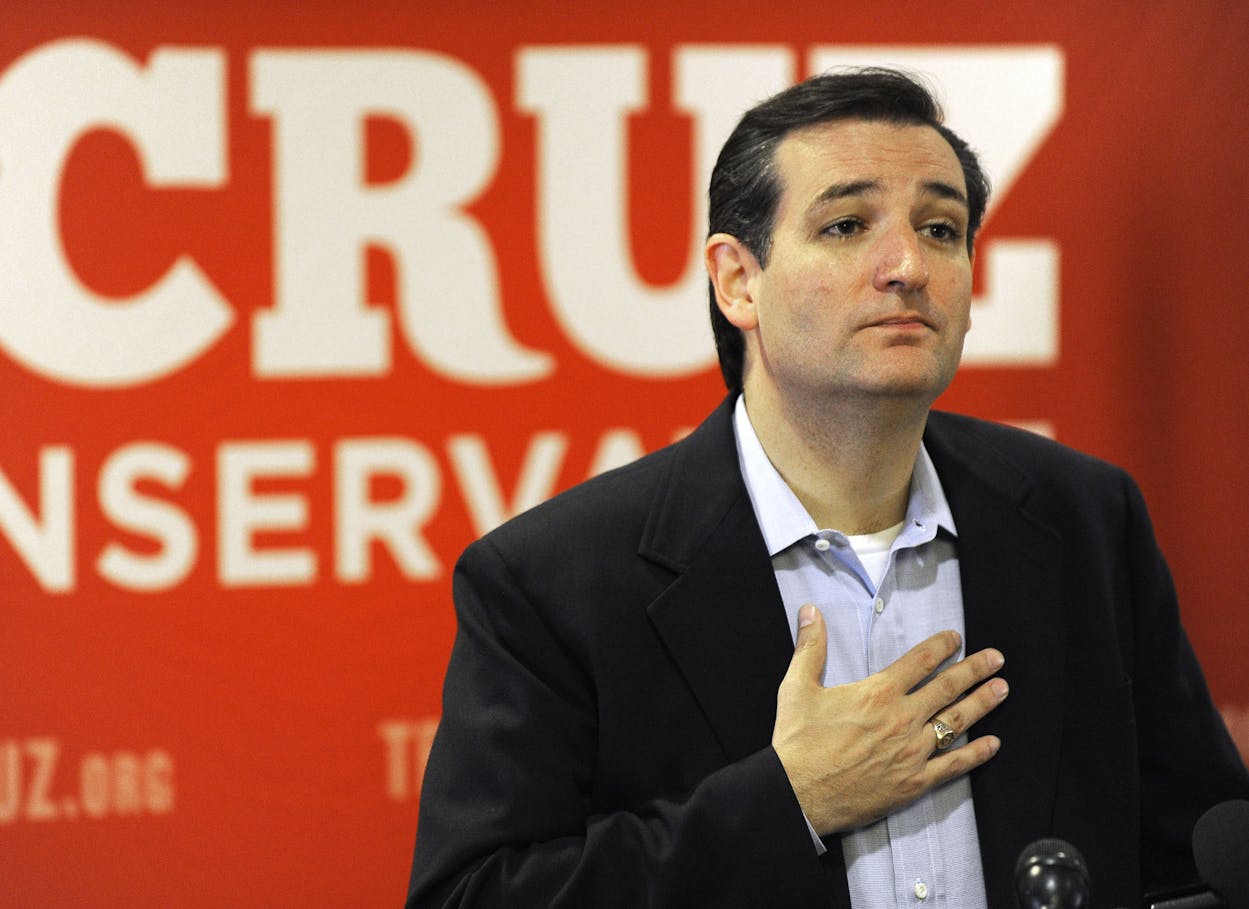As I wrote yesterday, I think America is facing a two-fold Trump problem. The proximate problem is that Donald Trump has been the frontrunner for the Republican presidential nomination since this summer, and the durability of his support suggests that he could in fact be the party’s nominee. The underlying problem is that America has a two-party political system, and one of the parties is receptive to a candidate such as Trump.
I don’t have a solution to the latter problem. But the former problem, the proximate Trump problem, is going to be resolved soon enough, as follows: Ted Cruz is now tied with Trump in Iowa. On February 1st, if not before, Trump’s dreams of winning the White House will be destroyed. To unpack that, let me review what we know about Trump and Cruz.
Trump is a candidate whose entire pitch, such as it is, rests on the illusion that he is a winner. He claims to be a successful businessman; in reality, he would have been better off investing the money he inherited in an index fund forty years ago. He claims to know more about ISIS “than the generals do”; in reality, the little he knows about the armed services is drawn from his experience at a military-themed boarding school. He thinks that he has “better” hair than Marco Rubio; I mean, can a sentient adult offer a straight-faced response to that?
We already know how Trump responds when his braggadocio is exposed for the posturing it is: he lashes out. He’s still brooding about Fox News anchor Megyn Kelly, who committed the cardinal sin of asking him questions during a debate. When Ben Carson challenged his status as frontrunner in the polls, Trump responded by flapping his belt around and comparing Carson to a child molester.
Cruz, meanwhile, is a student of Sun Tzu: “Every battle is won before it is fought. It is won by choosing the terrain on which the battle is fought.” He has won unwinnable arguments before. He has won unwinnable elections before. Cruz does not pick fights he doesn’t think he can win, with the asterisk that sometimes he picks fights with an eye to winning the battle rather than the war. His fight to defund Obamacare, for example, was a fight he picked with an eye to winning the Republican nomination in 2016. And Cruz is now in a position to win the Iowa caucus, which is the kind of fight that he is optimally equipped to win: like Rick Santorum in 2012 and Mike Huckabee in 2008, his support in the polls is an indicator of the passion of the grassroots conservatives, particularly evangelicals, he has carefully cultivated throughout this campaign.
Trump has two choices. He can withdraw from the race for the Republican nomination prior to Iowa’s vote, on February 1st. If so, he sacrifices the prospect of running as an independent candidate. He pledged not to do so back in September, and has recently suggested (entirely predictably) that he might renege on that pledge. Trump’s stated reason for thinking about breaking his own pledge, however, was as follows: “GOP getting ready to treat me unfairly.” That would be a piteous situation. But for the voters of Iowa to select Cruz over Trump would hardly qualify as unfair treatment on the part of the establishment.
Alternatively Trump can take his chances against Cruz. If so he will come to grief, and he will have no one to blame but himself. Though Trump has more than a dozen rivals for the Republican nomination, none have come so close to earning his approval as Cruz has. Trump has even floated the idea of picking Cruz as his running mate. “Well, I like him,” Trump said last week, and that may be the case. Cruz is nonetheless running for the nomination, not to be Trump’s running mate, and Trump has no chance of dissuading the cold, careful Cruz from that goal.







